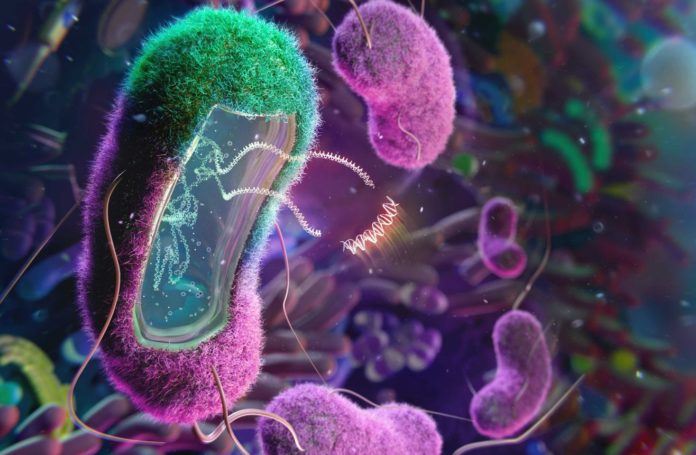Scientists have long attempted to introduce genetically modified bacteria into the gut in order to treat diseases.
Previously, these efforts focused on developing common lab strains of E. coli, which are unable to compete with native gut bacteria that are well suited to their host.
Now, a group of scientists from the University of California, San Diego, have successfully engineered E. coli from the gut microbiomes of both humans and mice and shown that they could be used to treat diseases like diabetes.
The findings of the study were published in the journal Cell today.
“All I can say to the non-native bacteria is good luck. The gut microbiome is very dynamic,” says Amir Zarrinpar, “and is constantly changing, making things even harder for the non-native bacteria.”
According to the senior researcher, “it is challenging for bacteria that have never lived inside of a mammal before to now go into the gut microbiome jungle with all of these hostile conditions that are geared towards preventing bacterial invaders from taking hold.”
The team solved the challenge by directly engineering E. coli obtained from the hosts. According to Zarrinpar, b Bacteria in our bodies are specially tailored to each of us: the types of foods we eat, the typical stresses our bodies undergo or produce, and our genetic heritage.
“This constantly fluctuating environment is their normal.”
Native bacteria benefit greatly from this and are therefore excellent candidates for engineering.
Zarrinpar says that these bacteria have been modified to function as factories that can generate drugs and survive in the human microbiome.
“We know that E. coli can pick up pathogenic genes and cause disease, and now we’re just realizing that if we put a beneficial gene in, it can help us to treat chronic diseases, maybe even cure some of them.”
In order to further modify E. coli, the team first took samples of the host’s excrement. Zarrinpar explains, “We say to the bacteria: Hey, we will give you a new superpower, which you may not even benefit from, but we will put you right back into the environment that you thrive in.
An enzyme called bile salt hydrolase (BSH) is the protein that the team provided to these particular bacteria as a superpower. E. coli carrying BSH were discovered throughout the whole stomach of the mice after just one treatment, and they continued to produce BSH throughout the host’s lifetime. The team also demonstrates how BSH activity can prevent mice from developing diabetes.
This is a major improvement over similar treatments using non-native laboratory strains of artificial bacteria, which frequently require many treatments. And, unlike the native E. coli technique discovered by Professor Zarrinpar’s team, these modified bacteria do not remain in the host’s stomach for nearly as long or as consistently.
The team was able to modify E. coli taken from the human gut in a manner comparable to how it effectively influenced diabetes in mice.
Even though they have shown significant successes, engineering native microorganisms have its own set of difficulties.
According to Zarrinpar, “Native bacteria are very resistant to modifications; it is part of their innate defense mechanism.”
Zarrinpar and his team are improving this procedure, but their statistics indicate that introducing a gene into a native bacterium has a 100-fold lower success rate than doing it with lab strain bacteria.
“There are many new genetic engineering tools available now that will allow us to engineer these bacteria more effectively,” adds Zarrinpar.
The team hopes to use this technique to identify new diseases that can be treated.
“We are dreaming big,” adds Zarrinpar. “This technology is something that can potentially open up the application of the microbiome therapy to influence so many different chronic and genetic diseases.”
Image Credit: THOM LEACH
You were reading: Scientists Just Found Another Way To Supercharge Your Gut Against Diabetes or Other Chronic Diseases
